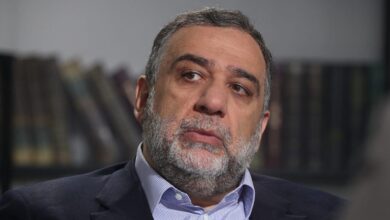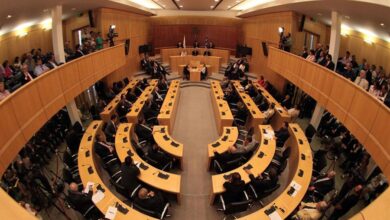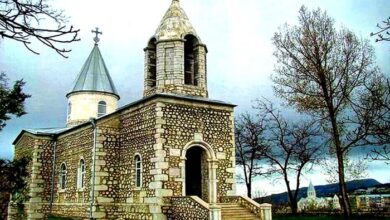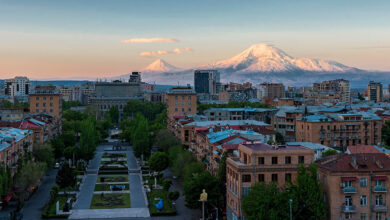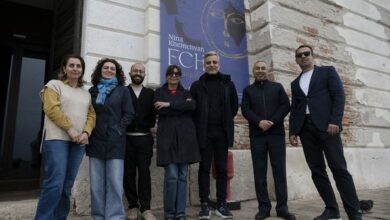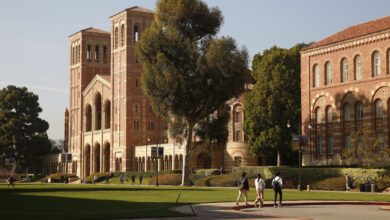Al-Monitor: Turkish woman’s search gives voice to Islamized Armenians
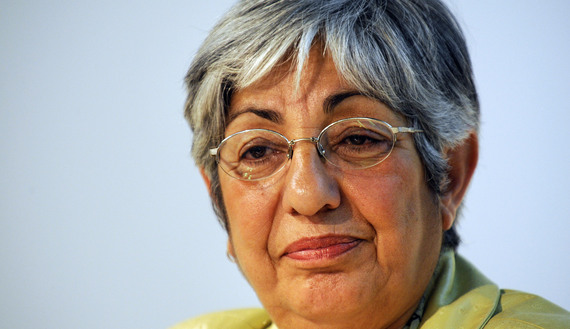
In an interview with Al-Monitor Fethiye Cetin, a human rights lawyer from Turkey, reflected on her courageous journey of coming out of the closet about a hidden Armenian grandmother. Cetin was born in Maden, Elazig (an eastern province of Turkey) in 1950. Her maternal grandmother, Seher, chose Cetin to reveal her long-hidden secret: she was an Armenian rescued from the 1915 death march by a soldier and adopted by his family. Her real name was Heranush, and in 1915 she was about 10 years old. After the Armenians left, their towns’ names were changed, as were orphans’ names. Seher was raised as a Turk and Muslim. After Seher passed away in 2000, Cetin published an obituary for her in the weekly Agos, the voice of the Turkish Armenian community.
In 2004, Cetin published a groundbreaking book, “My Grandmother,” narrating her grandmother’s story, which was then translated into 13 languages. In 2009, she published her second book, “The Grandchildren” [translated into three languages], this time interviewing grandchildren of the hidden Christians in Turkey. Her latest book, “I Feel Shame,” explains her doubts and concerns about the Hrant Dink case, in which she served as the Dink family’s attorney.
Al Monitor: It has been 10 years since “My Grandmother” was published. It was a groundbreaking book. After a decade, how do you see its impact on Turkish society and politics or beyond? Also, how did the book affect your personal life?
Speaking about the impact of the “My Grandmother” ten years after the book was published, Cetin said: “The events of 1915 were taboo in Turkey; it was not spoken of in public or private. There was a painful silence. There was silence about the Armenian genocide, and there was silence about Islamized Armenians. I was in prison for protesting against the military regime as a young student for a short time in 1980. We were brave and loud in our resistance. We sang, shouted our slogans. In our small cell, we formed strong bonds of friendship as the women of resistance, yet whenever this issue of Armenian roots came up, we only whispered. That is what led me to come out in the open decades later [in 2004] and publish this book. I wanted it to be heard loud and clear. I believed I owed it to my grandmother and others who survived the events and whose lives and identities changed completely and they never got a chance to talk about it. Most of the grandparents have passed away now. We do not know what they lived through but we know their silence. I believe genocide is not just the number of people who have been massacred, but it is also the greatness, the intensity of silence in the society about it. The deeper the silence, the deeper the human tragedy becomes.”
“For me, personally, the book was perceived positively. I was not persecuted. Earlier, famous authors such as Orhan Pamuk faced charges for touching on a similar issue, but my book was received positively. And this gave us hope to break the silence. After my first book, “My Grandmother,” people started questioning their own family trees. Indeed, in Turkey, only a few families have family trees. However, after the book, young people started asking questions. They realized some of their family stories did not add up and should be questioned. Some said, “Yes, it is odd my grandmother had no living relatives, could she be of Greek or Armenian origin?” They started investigating. We still cannot gauge the exact number of grandkids of Islamized Armenians today, but from their stories came the second book,” she said.
“After the publication of “My Grandmother,” my family divided into two. One group was upset with me, asking, “Why are you opening up old stories now?” “Why are you revealing our identity in the public eye?” They were concerned about possible negative reactions. The other half, particularly the younger generation, was accepting and curious. That gives me hope,” Cetin added.
Asked why she chose not to use the word ‘genocide’ in the book, the author said: “I did not use the word because my grandmother did not use it. I wanted to remain true to her story in that book. Using the word “genocide” would therefore have been my own interpretation. My goal was to showcase her story. I did not want to pass judgment on how we now should understand them; I wanted to present her life and experiences. And I think that is why the human story of the book connected with people. People even from ultra-nationalist backgrounds in Turkey still stop me on the street today and tell me how it made them question their own family trees and brought them together with relatives they never knew existed, I think because it was just a human story exclusively and it was the first to pull the covers off a hidden part of history.



